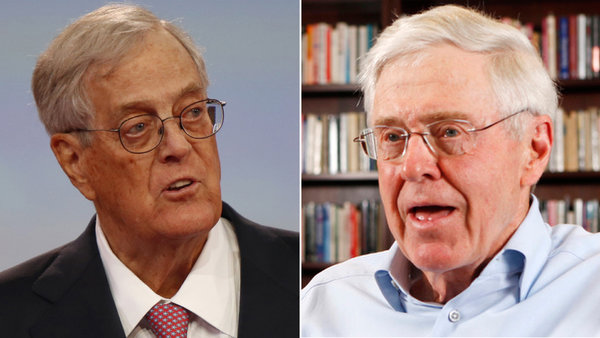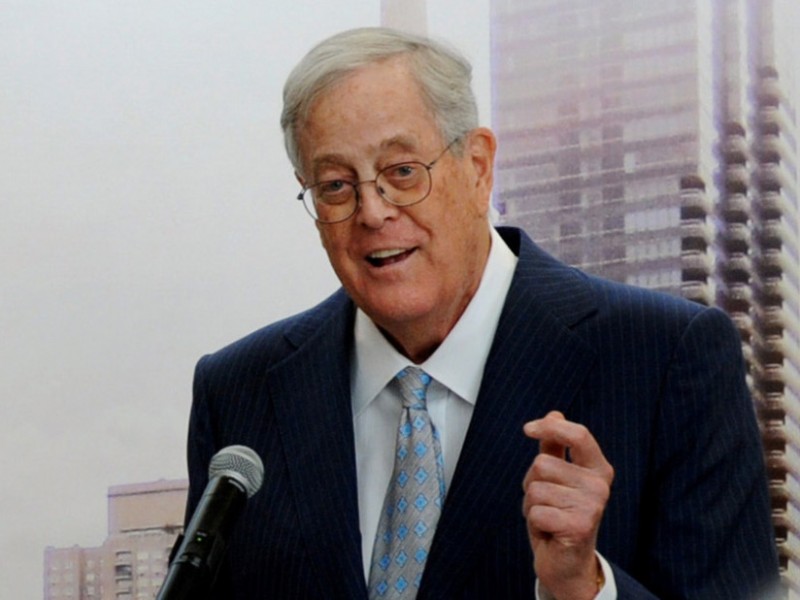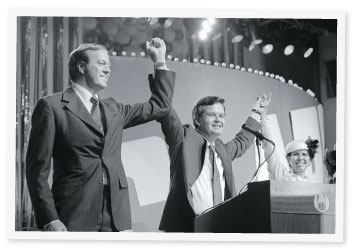March 11, 2011- For weeks now, Democrats have lamented the power of the Koch brothers, and their ability to largely fund without public disclosure. But it’s worth remembering who incentivized the Kochs to do this: the 47 Democrats, 11 Republicans and 1 independent in the Senate who voted in favor of the McCain-Feingold law of 2002.
“Before McCain-Feingold, the RNC could take soft money [unregulated, unlimited donations] if they were going to use it for state elections,” something they can no longer do, explains Hans von Spakovsky, a former member of the Federal Election Commission and a Senior Legal Fellow at the Heritage Foundation.
David Koch gave hundreds of thousands of dollars in soft money to the Republican National Committee in the 1990s. Nowadays, prevented from donating such large sums to the RNC, David Koch has shifted much of his effort and contributions to his organization, Americans for Prosperity, a non-profit which focuses on issue advocacy.
While the intention of McCain-Feingold was to try and limit the influence of money in politics, the effect was merely to shift money from one area to another – weakening the national parties in favor of outside groups.
“The authors would say that the overarching goal was to limit the corruption of money being involved in politics, but… it just changed around the flow of money in politics, and didn’t limit [it],” notes Jeff Patch, the Communications Director for the Center for Competitive Politics.
And outside groups are less transparent: 501(c)4s, for example, don’t require public disclosure of donors.
As outside organizations flourish, traditional party structures atrophy.
The Republican National Committee is $22 million in debt. A decade ago, large soft-money contributions could have cushioned that debt. Today the RNC is limited to retiring its debt by collecting a maximum of $30,800 from each individual donor, and corporations are prohibited from making such donations.
Prevented from making the kind of impact they could once make at the RNC, large conservative donors have found other ways to aid their causes without federal contribution limits. “The money in the past that would have gone to the political party is now going to independent [organizations],” says von Spakovsky. For example, conservative businessman Karl Rove’s 527 organization, American Crossroads, is likewise another beneficiary of McCain-Feingold.
A weakened Republican National Committee is one that will have less of an effect on the kinds of candidates the Republican Party runs. Already stifled by statutory limits on the amount it can transfer to individual campaigns the RNC will be further limited by its debt from giving to individual campaigns.
As such, Republicans will be far more interested in finding candidates who can fundraise or self-fundraise for their campaigns, rather than focusing on finding candidates who would make good legislators and agree broadly with the Republican Party’s objectives.
Indeed, the RNC being less able to give money to campaigns also means that they will be less effective in preventing their candidates from ‘going rogue’.




'Frum Forum: How McCain-Feingold Empowered the Kochs' have no comments
Be the first to comment this post!